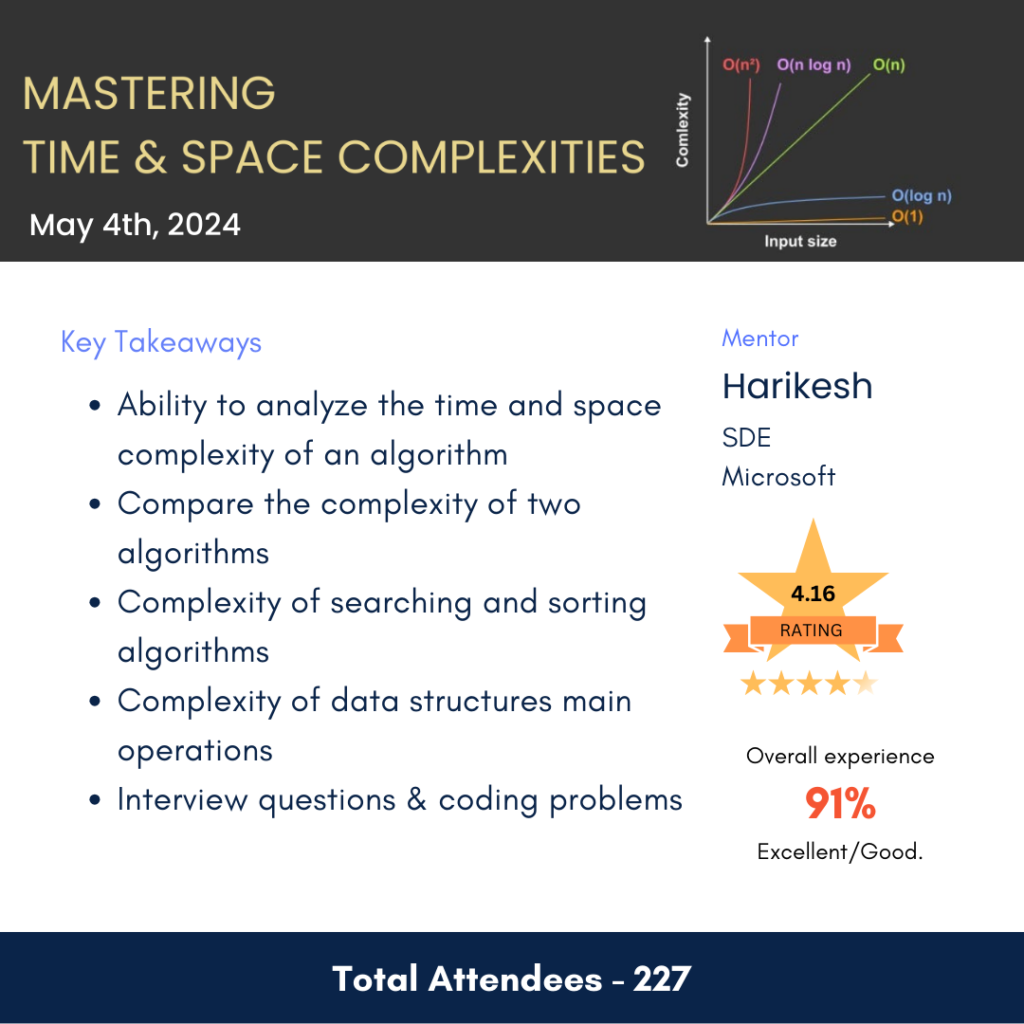
Date – Sunday, 26th May, 2024 | Time – Starts at 11 AM | Duration – 2 hours | Mode – Online
Webinar Series
Mastering MAANG & Product Company interviews
Meet your host and Mentor
You will learn
- Stack data structure in-depth
- Real world use cases of Stack
- Advantages of Stack over other data structures
- Coding Challenges & Solutions
- Practice Questions
What is Stack, and where is it used?
Stack is a fundamental data structure in computer science that operates on a Last-In-First-Out (LIFO) principle. This means that the last element added to the stack will be the first one to be removed.
It is analogous to a stack of plates: you can only take the top plate off the stack, and when you add a plate, you place it on the top.
Stacks are vital in computer science and programming for several reasons:
Function Call Management: Stacks are used to keep track of function calls and local variables.
Expression Evaluation and Parsing: Stacks are essential in parsing expressions (such as converting infix expressions to postfix notation) and in evaluating postfix expressions.
Backtracking Algorithms: Algorithms that involve backtracking, such as solving mazes, puzzles (like Sudoku), or navigating decision trees, often use stacks to keep track of the path or decisions taken.
Undo Mechanisms: Many software applications, such as text editors and graphic design tools, use stacks to implement undo functionality.
Memory Management: Stacks are used for memory management, particularly in allocating and deallocating memory dynamically.
Syntax Checking: Stacks help in checking the syntax of expressions, particularly in verifying balanced parentheses, brackets, and braces in code.
Algorithm Implementation: Many algorithms, especially those involving recursion, can be implemented using stacks to avoid stack overflow and manage the algorithm’s state explicitly.
Overall, stacks provide a simple, efficient, and elegant way to manage data and control flow in various computing processes, making them a foundational tool in computer science.
Register Now
Limited seats, register for this event by filling the below form.
Registrations for this webinar has been stopped. You can stay up to date about webinars from Gradious by joining our Telegram channel.
For all webinar related updates, join our telegram channel
Our Previous Webinars






